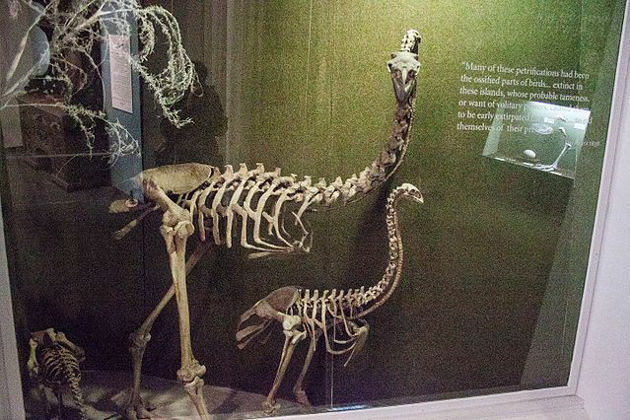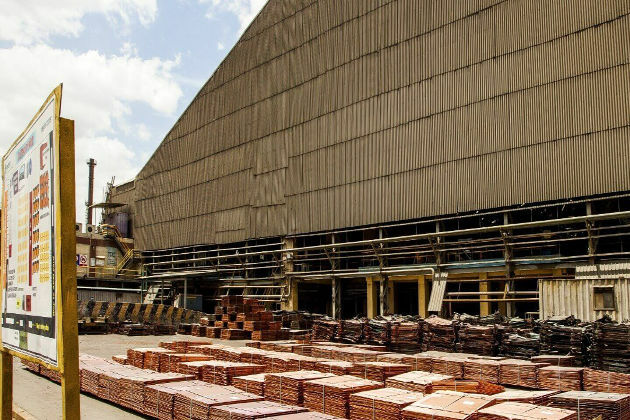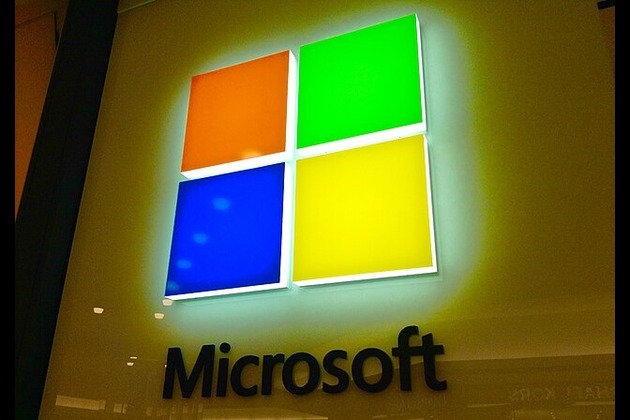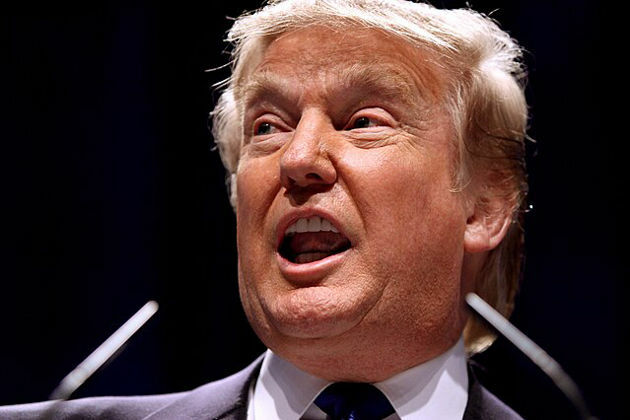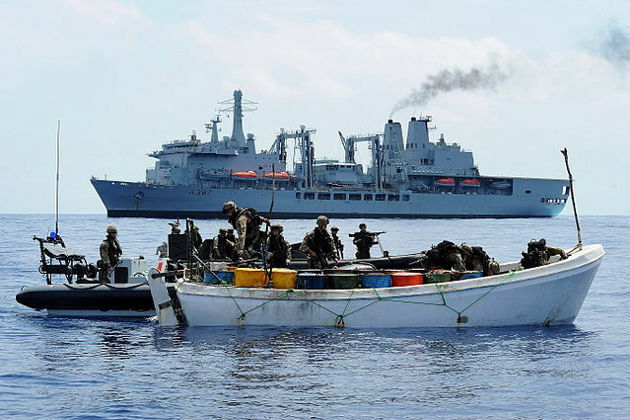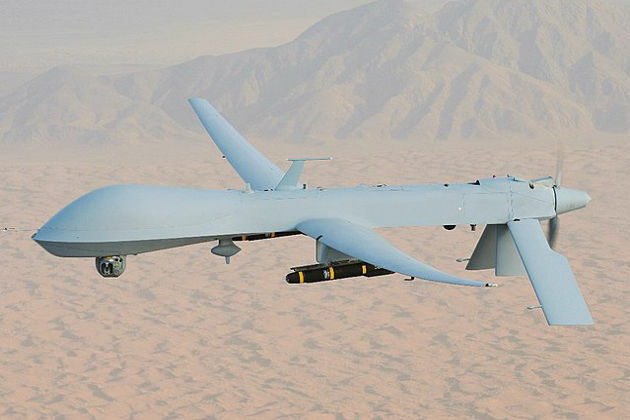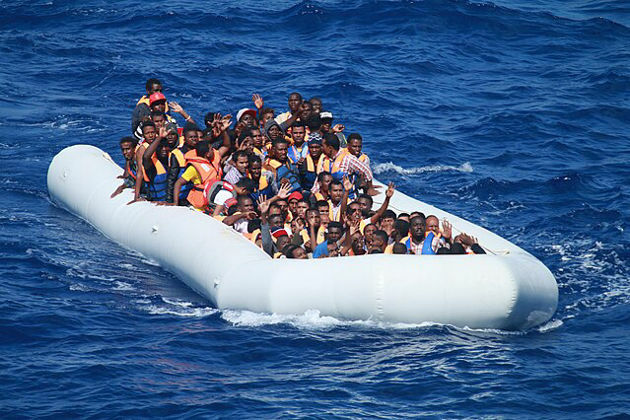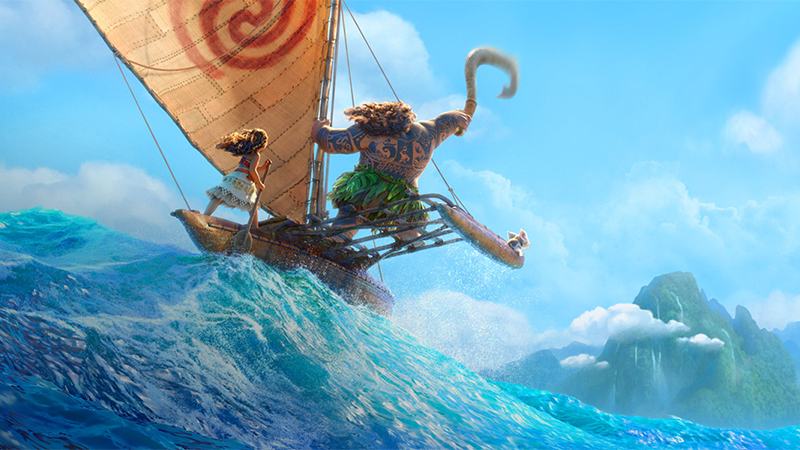Mike Pezzullo beats the war drum
Independent Australia
02 May 2021, 04:22 GMT+10
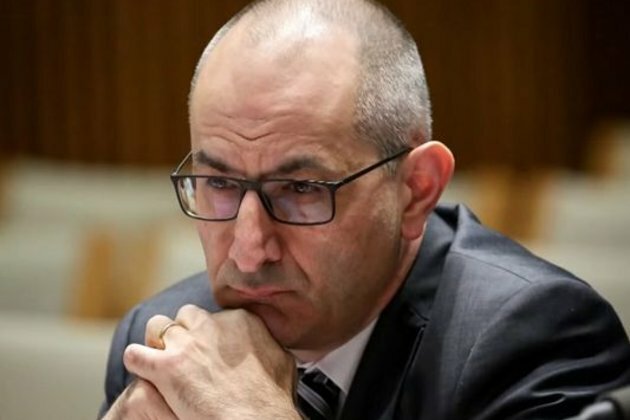
In his ANZAC Day address, Home Affairs Secretary Mike Pezzullo has warned Australians should be prepared for war, writes Dr Binoy Kampmark.
DURING MUSINGS to his staff on the occasion of this year's ANZAC commemorations, arguably the most powerful of bureaucrats at the Australian Public Service overshot his brief. Home Affairs Secretary Mike Pezzullo had forgotten that he was not a politician nor a member of the military. But he was strident in his address, titled 'The Longing for Peace, the Curse of War': Australia, in wishing for peace, should prepare for war.
This set of airings was not revealing in originality. What was striking was that it was even allowed to take place and duly oxygenated with publicity. Ailing in terms of its stuttering vaccine rollout, constipated on climate change and the ongoing problems with hotel quarantine arrangements, the Morrison Government has taken refuge in distracting pitches. When domestic crisis grips, focus the gaze of the elector elsewhere: a future or current enemy; a crisis made by an adversary.
Pezzullo's former boss, Peter Dutton, has already made the running on that score as Defence Minister, making the claim to the ABC that war over Taiwan could be countenanced:
Pezzullo swaps 'dark kaleidoscope' for a rear view mirror
Beijing, he noted, had been increasingly noisy on its "reunification" position on Taiwan. Chinese foreign ministry spokesman Wang Wenbin reminded Dutton that Australia should acknowledge the "sensitivity of the Taiwan issue" and the "one-China principle" that has governed international relations for decades.
While China is never mentioned in his speech as the convenient distracting threat and nasty bogeyman, Pezzullo larded his address with various warmongering clues:
The outcome of such wishes is always vicarious for deskbound Mandarins seduced by the trappings of war, which the humanist philosopher Erasmus warned tended to be sweet for those who had never experienced it. Others die so that papers can be shuffled, alliances shored up and pronouncements upon liberty and freedom made in halls and press galleries.
For Pezzullo, resorting to war:
In preparing the canines of war, Pezzullo tried to play the historical boffin, drawing upon precedent. U.S. Army General Douglas MacArthur's address to the West Point Military academy in May 1962 furnishes him a statement of unwavering, unquestioning loyalty; cadets were told that 'their mission was to train and fight and, when called upon, to win their nation's wars'. The Home Affairs Secretary forgets himself here, his civilian pose abandoned in a flight of fancy for khaki rhetoric. Not all wars should be pursued with such uncritical facility.
Having cherry-picked MacArthur, Pezzullo does the same to U.S. President Dwight D Eisenhower who, in April 1953, 'rallied his fellow Americans to the danger posed by the amassing of Soviet military power, and the new risks of military aggression'. (The Secretary shows himself to be not quite the historical boffin here, ignoring the same President's warning to democracy posed by the paranoia and clutches of the military-Industrial complex.)
Not sleepwalking but marching with eyes wide open to war
Of greater importance was Eisenhower instilling 'in the free nations the conviction that as long as there persists tyranny's threat to freedom they must remain armed, strong and ready for war, even as they lament the course of war.'
A diagnosis follows regarding the current international situation:
In the context of Australian history, few military engagements have been necessary for existentially sound reasons. The forces of Imperial Japan menaced during the Second World War, being one of the few conflicts where Australian guns and steel could be justified in their use. In general, Australian personnel have found themselves greasing and blooding the wheels of other empires.
The policy of placing Australia on a warpath unconditioned by history and driven by foolish fidelity, is dangerously misplaced.
Pezzullo salutes the U.S.-Australian alliance with reverence:
This included the nuclear deterrent and Washington's 'willingness and preparedness to wage war against a major power adversary'.
There is an alternative to war in the South China Sea
Pity for war enthused public servants that all such alliances remain conditioned by self-interest and shackling circumstance. The nuclear deterrent remains the stuff of a dotty suicide pact, unprovable and unverifiable. And the claim that the U.S. would use, with cavalier abandon, force to defend Australia is foolish.
Again, history, supposedly loved by the Secretary, supplies a lesson. The Fall of Singapore to the forces of Imperial Japan in February 1942 shocked Australia's strategic establishment. Then, Mother Britain's insurance for Australia's safety was found wanting. British naval power was shown up by the might of Imperial Japan. 'This was a quintessential failure of an alliance,' wrote Hugh White in 2017, 'and of a strategic policy based on alliances'.
The Fall of Singapore revealed:
The parallels with the U.S., according to White, are unnervingly clear. From 1996 to the mid-2000s, bipartisan politics seemed to accept that Australian security could well be left in the reassuring bosom of Washington's military. But just as Britain faced a different military and strategic reality in 1942, the U.S. was "weaker economically, diplomatically and military than it has been since World War Two, and yet we rely on it more". Washington's security guarantees had cheapened in value.
Pezzullo's reference to MacArthur is instructive in another way. The distinguished general overstretched his remit as a commanding officer, wishing to expand the Korean War with the use of atomic weaponry, even against targets in China. In subsequent interviews, he claimed that 30 to 50 tactical atomic bombs would have been a satisfactory use of force in attaining victory.
U.S. President Harry S Truman, in stern disagreement, relieved MacArthur of his command. That Pezzullo has suffered neither rebuke nor correction is itself a statement of his own bolshie confidence and how politicised the Home Affairs Department has become. The war drums are beating, but their rhythm issue from Canberra.
Dr Binoy Kampmark was a Cambridge Scholar and is an Independent Australia columnist and lecturer at RMIT University. You can follow Dr Kampmark on Twitter @BKampmark.
Related Articles
 Share
Share
 Tweet
Tweet
 Share
Share
 Flip
Flip
 Email
Email
Watch latest videos
Subscribe and Follow
Get a daily dose of Sydney Sun news through our daily email, its complimentary and keeps you fully up to date with world and business news as well.
News RELEASES
Publish news of your business, community or sports group, personnel appointments, major event and more by submitting a news release to Sydney Sun.
More InformationBusiness
SectionWK Kellogg sold to Ferrero as food giants chase shelf power
BATTLE CREEK, Michigan: In a major consolidation of iconic food brands, WK Kellogg has agreed to be acquired by the owner of Ferrero...
Filmmaker joins biotech effort to bring back extinct giant bird
WASHINGTON, D.C.: Filmmaker Peter Jackson's lifelong fascination with the extinct giant New Zealand flightless bird called the moa...
India seeks WTO nod for retaliatory tariffs on US
NEW DELHI, India: India has submitted a revised proposal to the World Trade Organization (WTO) in Geneva to implement retaliatory tariffs...
AI boom propels Nvidia to historic market cap milestone
SAN FRANCISCO, California: Nvidia, the Silicon Valley chipmaker at the heart of the artificial intelligence boom, this week briefly...
AI saves $500 million for Microsoft as layoffs reshape strategy
REDMOND, Washington: Artificial intelligence is transforming Microsoft's bottom line. The company saved over US$500 million last year...
FTC’s rule to ease subscription cancellations struck down by court
WASHINGTON, D.C.: A federal rule designed to make it easier for Americans to cancel subscriptions has been blocked by a U.S. appeals...
International
SectionU.S. Urged to Investigate After Israeli Settlers Beat Palestinian-American to Death
The family of Sayfollah Saif Musallet, a 20-year-old American citizen who was beaten to death by Israeli settlers in the occupied West...
New Hampshire federal court ruling defies Trump’s citizenship move
CONCORD, New Hampshire: A federal judge in New Hampshire issued a crucial ruling on July 10 against President Donald Trump's executive...
Houthis attack cargo ship in Red Sea, raising maritime safety fears
DUBAI, U.A.E.: A cargo ship flagged under Liberia, known as the Eternity C, sank in the Red Sea following an attack executed by Yemen's...
Trump administration restarts Ukraine arms deliveries
WASHINGTON, D.C.: The Trump administration has started sending some weapons to Ukraine again, just a week after the Pentagon told officials...
From France’s shores, desperate migrants look to reach British coast
ECAULT BEACH, France: On clear days, the white cliffs of the United Kingdom, are visible from northern France, where men, women, and...
CDC: US records 1,288 measles cases, most since 1992 outbreak
ATLANTA, Georgia: The United States is facing its worst measles outbreak in more than three decades, with 1,288 confirmed cases so...


